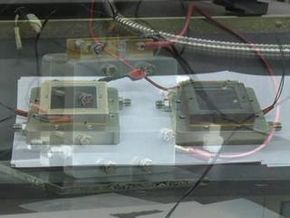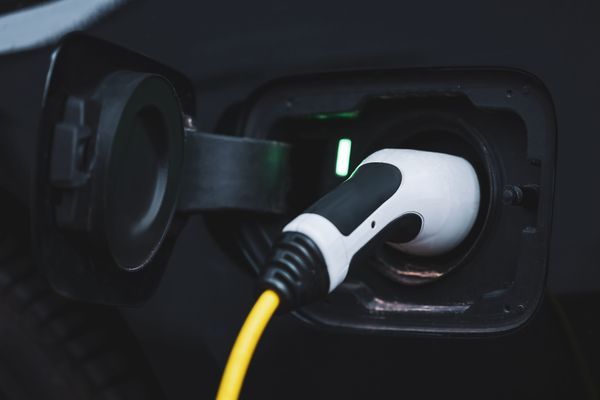Fuel cells run on hydrogen. Unfortunately, while hydrogen is the most common element in the universe, it does not exist on Earth in its elemental form. As a result, hydrogen must be extracted from a hydrogen compound, such as fossil fuel or water, in order to be used here on Earth. A separate energy source is needed to extract the hydrogen, such as heat, light or electricity.
The lack of pure hydrogen on Earth creates a particular challenge for fuel cells that are needed to run cars. There are fuel cells that run on pure hydrogen, which means the extraction of the hydrogen has occurred before the hydrogen enters the fuel cells. A pure hydrogen fuel cell generally has an 80% energy efficiency, which means 80% of the hydrogen's energy content can be converted into electrical energy. Of course, the electrical energy still needs to be converted into mechanical energy to power the car. So overall, a pure hydrogen fuel cell's energy efficiency rate (from hydrogen to mechanical energy) is generally around 64 percent.
Advertisement
However, there are some fuel cells that don't run on pure hydrogen, but instead require a hydrogen fuel reformer. The reformer is the device that extracts the pure hydrogen from a hydrogen source, such as hydrocarbon or alcohol fuels, and then provides the hydrogen to the fuel cell. Since the hydrogen fuel reformer is extracting the hydrogen itself, the reformer has to clean up the hydrogen and separate it from the rest of the heat and gases that get produced during the reforming process. Despite the reformer's best efforts, the hydrogen it can provide to a fuel cell isn't as pure as the hydrogen accessed by a pure hydrogen fuel source. As a result, the overall energy efficiency of a fuel cell that requires a hydrogen fuel reformer is lower than that of a fuel cell operating on pure hydrogen.

